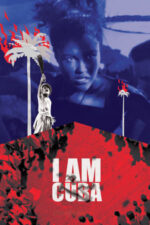The tumultuous period of the Cuban Revolution has provided fertile ground for storytellers, offering a rich tapestry of human experiences amidst political upheaval. The films that have emerged from this era capture the spirit of a nation on the brink, reflecting both the hope and despair inherent in times of revolutionary change.
In "Cuba", we witness a foreign mercenary drawn into the escalating conflict between General Batista's regime and Fidel Castro's guerrilla forces. The film masterfully portrays the complex interplay between personal relationships and political allegiances, as the protagonist navigates treacherous waters of love, betrayal, and loyalty in a country teetering on the edge of change. This thrilling tale highlights how individuals are often caught in the crossfire of larger political struggles, forced to make difficult choices that can have far-reaching consequences.
"Viva Cuba" offers an alternative perspective, focusing on the experiences of ordinary people struggling to survive in a rapidly transforming society. Malú and Jorgito's innocent friendship serves as a poignant reminder of the human connections that transcend social boundaries, even amidst profound societal shifts. As class distinctions widen and familial pressures mount, the film underscores how the aspirations of individuals can be crushed by the weight of cultural norms and generational expectations.
"Comandante" offers a rare glimpse into the mind of Fidel Castro through director Oliver Stone's intimate documentary. The film invites viewers to engage with Castro on a deeply personal level, shedding light on his motivations and worldview as he recounts key moments from his revolutionary journey. By juxtaposing these candid conversations with scenes of present-day Cuba, the movie paints an evocative picture of the enduring legacy of Castro's leadership, prompting us to question how far-reaching his impact has been on both his nation and the world at large.
Agnès Varda's "Hello Cubans" presents a poignant snapshot of life in Cuba during its early years of socialist transformation. This documentary showcases an evocative montage of photographs from 1963, offering viewers a unique opportunity to witness the essence of Cuban culture and daily life during this pivotal period. Through Varda's poignant imagery, we are granted access to a world that has seldom been explored so intimately on screen.
Meanwhile, "I Am Cuba" interweaves four distinct stories set against the backdrop of pre-revolutionary Cuba. From Maria's struggle for dignity in a society dominated by political turmoil to Pedro's fight against economic exploitation, each narrative provides a glimpse into the diverse lives impacted by revolutionary change. Collectively, these tales paint a vivid portrait of a nation on the precipice of transformation, highlighting both the challenges and opportunities that emerge during times of upheaval.
Finally, "Havana" brings us into the heart of revolution-era Havana through the eyes of an audacious gambler entangled in a passionate affair with the wife of a Communist revolutionary. This gripping narrative explores themes of risk-taking, forbidden love, and personal conviction against the backdrop of societal change, reminding us that human emotions continue to play out amidst larger political upheavals.
Each of these films offers a unique perspective on the Cuban Revolution, illuminating different aspects of this complex era through engaging narratives and evocative storytelling. Together, they provide a rich mosaic of human experiences - love stories, tales of struggle, and glimpses into societal shifts - that serve as powerful reminders of the enduring impact of revolutionary times.
So why delve into these films? They transport us to another time and place, allowing us to witness history through the lens of fiction or documentary, empathize with characters caught in the crossfire of political change, and reflect on how societies transform when faced with profound challenges. In essence, they offer invaluable insights into one of the most pivotal moments in Cuban history, inviting us to explore, question, and connect with a world both similar and vastly different from our own.






























